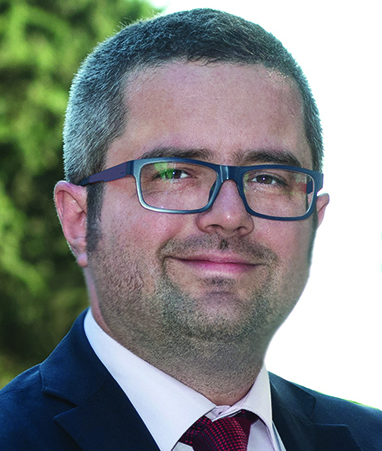
Financial Risk Management 1 & 2
Περιγραφή
Αντικειμενικός σκοπός του σεμιναρίου είναι η παρουσίαση σε βάθος και με πρακτικό προσανατολισμό των διαφόρων ειδών χρηματοοικονομικού κινδύνου που αντιμετωπίζει το σύγχρονο εταιρικό στέλεχος στις βασικές δραστηριότητες του είτε εντός της επιχείρησης είτε ως εξωτερικός επενδυτής, καθώς και των μεθόδων που έχει στη διάθεση του για την αντιμετώπιση των κινδύνων αυτών. Στα πλαίσια της ενότητας αναλύεται ο τρόπος με τον οποίο οι διάφοροι χρηματοοικονομικοί κίνδυνοι επηρεάζουν την αξιολόγηση των κεφαλαιουχικών επενδύσεων και την συνολική αξία της επιχείρησης.
Σε ποιους απευθύνεται
- Επιχειρηματίες,
- Επαγγελματίες,
- Στελέχη Οικονομικής Δ/νσης,
- Στελέχη Εμπορικής Δ/νσης και Μάρκετινγκ,
- Στελέχη Βιομηχανικής Παραγωγής,
- Στελέχη της Εφοδιαστικής Αλυσίδας,
- Στελέχη Διαχείρισης Έργων,
- Μηχανικούς,
- Στελέχη της Διεύθυνσης Ανθρώπινου Δυναμικού,
- Στελέχη Μηχανογράφησης,
- Νομικούς.
Θεματολογία
- Αγοράς (Market Risk),
- Πιστωτικός (Default Risk),
- Συναλλαγματικός (Foreign Exchange Risk)
- Επιτοκίων (Interest Rate Risk)
- Ρευστότητας (Liquidity Risk)
- Συστηματικός / Μη συστηματικός (Systematic v. Firm Specific risk)
- Διακύμανση / Τυπική Απόκλιση (Variance / Standard Deviation),
- Συντελεστές Βήτα με και χωρίς μόχλευση (Levered & Unlevered Betas),
- Αξία σε Κίνδυνο (Value at Risk),
- Αξιολόγηση επενδυτικών αποφάσεων κεφαλαιουχικού εξοπλισμού σε συνθήκες αβεβαιότητας,
- Οικονομική ανάλυση επενδυτικών σχεδίων και διαχείριση κινδύνου σε συνθήκες αβεβαιότητας, σχέση μεταξύ χρόνου και κινδύνου και μεταξύ απόδοσης και κινδύνου,
-
Υποδείγματα Προεξόφλησης Μερισμάτων (Dividend Discount Model),
-
Υποδείγματα Υπολειμματικών Ταμιακών Ροών (Free Cash Flow Model),
-
Υποδείγματα Σχετικής Αποτίμησης (Relative Valuation Model).
Τι θα μάθεις
- Θα αποκτήσεις γνώσεις σχετικά με τους χρηματοοικονομικούς κινδύνους που αντιμετωπίζει μια εταιρεία,
- Θα κατανοήσεις τον τρόπο με τον οποίο μπορεί να ποσοτικοποιήσεις τον χρηματοοικονομικό κίνδυνο,
- Θα αντιληφθείς με ποιο τρόπο τα στελέχη μια επιχείρησης μπορούν να αξιολογήσουν επενδύσεις κεφαλαιουχικού εξοπλισμού λαμβάνοντας υπόψη τον αναλαμβανόμενο κίνδυνο,
- Θα καταλάβεις με ποιο τρόπο επηρεάζει ο χρηματοοικονομικός κίνδυνος την αξία μιας επιχείρησης,
- Θα είσαι ικανός να συνδέεις καλύτερα και στην σωστή βάση τις έννοιες του κινδύνου, της απόδοσης και της αξίας των επενδύσεων
Seminar Timetable
Date | 1st & 2nd Teaching Hour | Break | 3rd & 4th Teaching Hour |
|---|---|---|---|
27th of September | 18.30 - 20.00 | 20:00 - 20:15 | 20.15 - 21.45 |
1st of October | 18.30 - 20.00 | 20:00 - 20:15 | 20:15 - 21:45 |
3rd of October | 18.30 - 20.00 | 20:00 - 20:15 | 20.15 - 21.45 |
7th of October | 18.30 - 20.00 | 20:00 - 20:15 | 20.15 - 21.45 |


Course Start Date
27 of September 2024
Cost of Attendance
- 16 Hours
- Live Online
- Attendance Certificate
Lecturer

Katsikas PhD, FHEA, CMBELecturer in Accounting at Kent Business School
Lecturer in Accounting at Kent Business School, University of Kent
Visiting professor at the University of Bologna, Italy and Kwansei Gakuin University, Japan

Grose PhDProfessor of Finance in the University of London
Professor of Finance in the University of London
Senior Research Fellow Hellenic Observatory of Corporate Governance
Chris Grose is an Assistant Professor at the International Hellenic University. He has a PhD in Finance from the University of Macedonia and an MSc in Money, Banking and Finance from the University of Birmingham. He has over 12 years of experience teaching subjects in Finance and Accounting mainly at a postgraduate level. He has extensive online teaching experience with various institutions. He teaches Finance in the Global MBA of the University of London and is a Senior Research Fellow at the Hellenic Observatory of Corporate Governance. Chris does consulting work for public organizations and private firms, while he has over 18 years of experience working for finance departments and consulting firms. His consultancy work focuses on both finance and corporate governance issues as well as in business process restructuring and business consultancy projects for public firms, organisations and SMEs. His broad research interests lie in the areas of corporate finance, institutional investing and corporate governance. His current research agenda focuses more specifically on corporate finance, investments, corporate restructurings and entrepreneurial finance. He has published in the Review of Quantitative Finance and Accounting, the Journal of International Financial Markets, Institutions and Money and the International Review of Financial Analysis amongst other journals.


